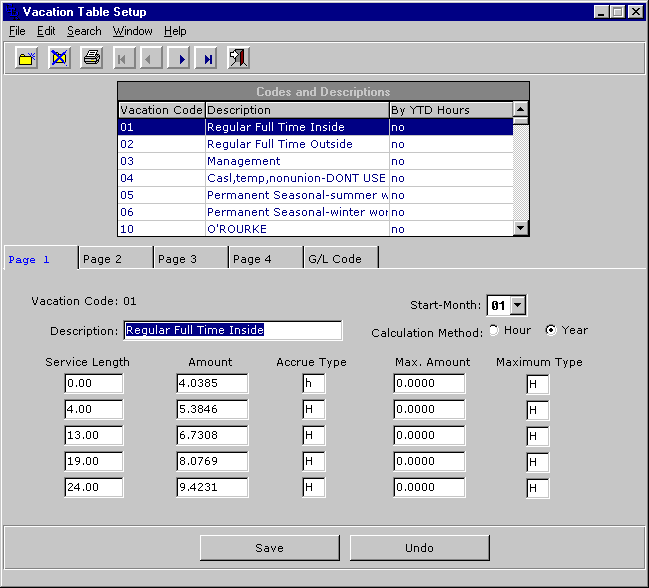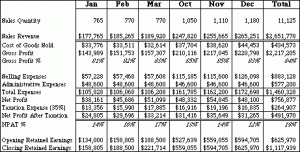
If you’re unsure about your tax obligations, you may want to talk to a professional accountant or tax expert for advice. Financial statements can yield valuable insights into how well your small business manages its income and expenses. You’ll also need to present up-to-date financial statements to lenders if you plan to apply for small business financing at some point. With a little bit of preparation, even novices will be able to take present and future value on bookkeeping or accounting tasks for their business.
What Is Small Business Accounting?

Many small businesses opt to use cash basis accounting because it’s simple to maintain. The method makes it easy to determine when a transaction has occurred (the money is either in the bank or out of the bank) and there is no need to track receivables or payables. Most of these applications cover the basics of accounting from invoicing, payments and payroll.
Under this method, you record income when you make a sale and expenses when you incur them. This is irrespective of whether you received or paid cash for the product or service. You must use a double-entry accounting system and record two entries for every transaction.
Accountant Cons
If you’re still feeling uncertain, don’t be afraid to speak with a professional bookkeeping service about securing their help. Note that you may need to make quarterly estimated tax payments if you expect to owe $1,000 or more when filing your annual tax return. If you’re managing inventory, set aside time to reorder products that sell quickly and identify others that are moving slowly and may have to be marked down or written off. This can be as simple as a statement showing your current cash position, expected upcoming cash receipts, and expected cash payments for this period. Lizzette began her career at Ernst & Young, where she audited a diverse set of companies, primarily in consumer products and media and entertainment. She has worked in the private industry as an accountant for law firms and ITOCHU Corporation, an international conglomerate that manages over 20 subsidiaries and affiliates.
Tip: Organize your documents
The software can assist you in keeping accurate records and create basic financial statements. Accounting software can help a business manage finances more efficiently, prepare for tax filing, and provide a clearer sense of the company’s financial health and needs. You can choose from many accounting software systems with varying features and prices. The type of business or industry and number of employees are two major factors to consider when choosing the best accounting software system. Small businesses may benefit from an accountant as the company grows and the need for more financial tracking, recording, forecasting, and budgeting accrues. Bookkeeping involves the day-to-day administrative tasks of recording sales and financial transactions.
Do you need a business credit card?
- Most accounting software lets you scan paper receipts and avoid physical files altogether.
- Based on the nature of your business, you might decide to offer credit to customers.
- Before you can start recording any financial transactions, you’ll need to create a chart of accounts for your company.
- A payroll service provider can do all this to save you time and ensure accuracy at a reasonable cost.
For example, you’ll use your personal tax return, Form 1040, to report business income and expenses on Schedule C if you’re a sole proprietor. If your business needs to charge and collect sales understanding the basics of infinite banking with whole life insurance tax for the products you sell, you’ll likely need to make monthly payments to the appropriate state department. You can use an accounts receivable aging report for a quick view of outstanding customer payments. The beginning of the month is a good time to send overdue reminder statements to customers, clients, and anyone else who owes you money.
Small businesses need to keep accurate records relating to any expenses they incur, particularly for expenses they plan to deduct. It’s also important to keep records of any agreements with vendors and suppliers, bank statements, documents showing payment of estimated quarterly taxes, and annual tax returns. Accounting or bookkeeping software is a good middle-of-the-road option, both in terms of how much hands-on bookkeeping you want to do and how much you want to spend on accounting software.
Finally, structure payroll in billing cycles that flow well with the company’s income stream. This means timing the frequency and amount of payouts in congruence with other business expenses and payouts. Maintaining a positive cash flow system is vital to a company’s success. A company should organize and track when and where cash goes at all times. what is cause marketing, and how can it take your business to the next level Too much debt or having income in overdue accounts receivables can put a company in a negative cash flow. The majority of your financial transactions will have to do with income and expenses.
Everyone from your bookkeeper to your CPA and the IRS needs you to keep documents proving the income, credits, and deductions you put on your tax return. Unless your business is legally required to use the accrual method, which method is best will depend on your accounting needs. Based on the nature of your business, you might decide to offer credit to customers. Instead of collecting payments at the point of sale, you may choose to invoice them at a later date. A trial balance is prepared to test if the total debits equal total credits.
